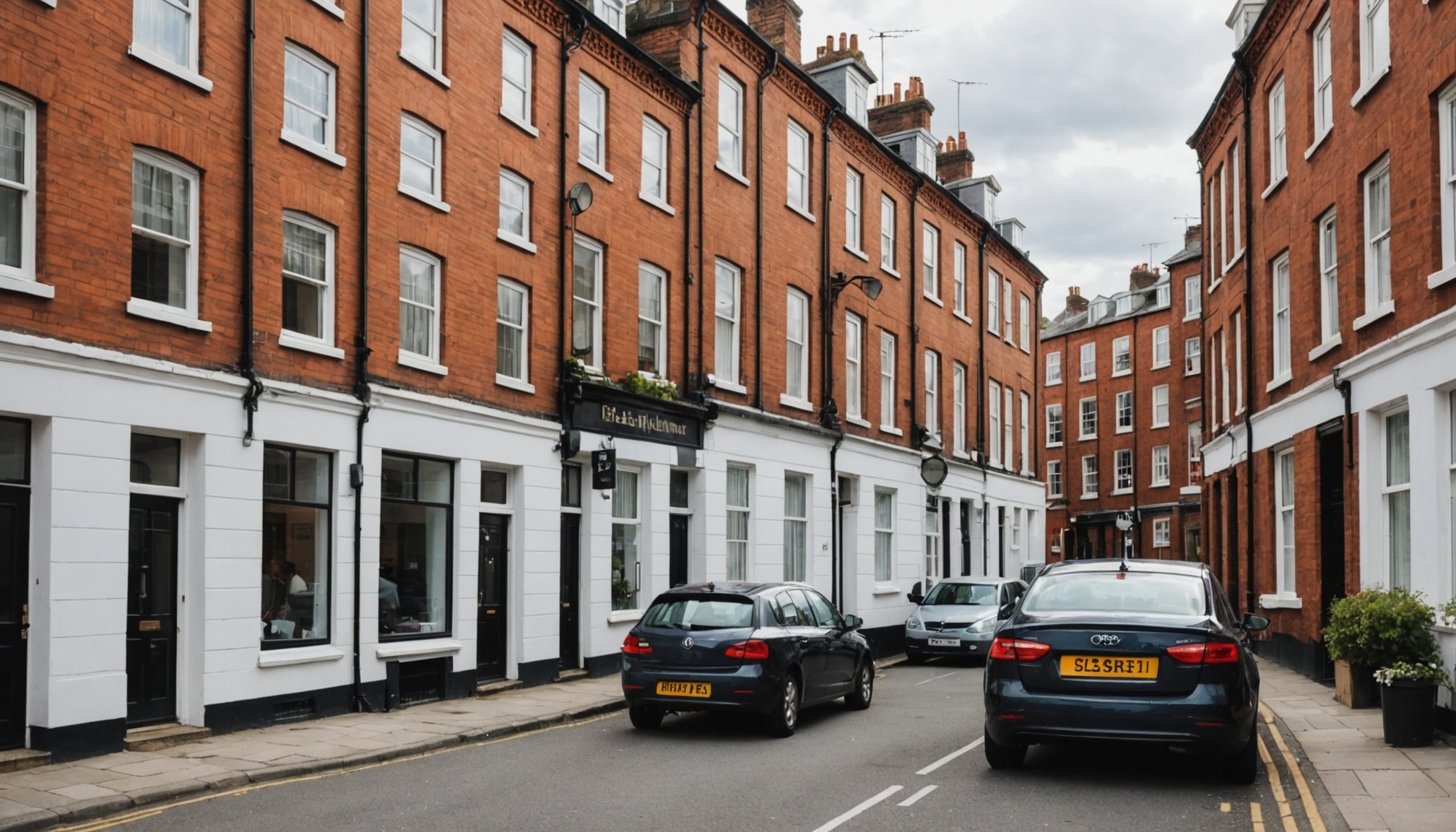Understanding Unlicensed HMOs
A House in Multiple Occupation (HMO) is a property rented by at least three people who are not from the same household but share facilities such as a bathroom or kitchen. Licensing becomes crucial when a property is occupied by five or more people, forming more than one household. However, many properties operate as unlicensed HMOs, bypassing these legal obligations.
Unlicensed HMOs pose significant legal regulations challenges. For landlords, neglecting to secure a license can result in hefty penalties, including fines or even criminal charges. Tenants, on the other hand, might unknowingly find themselves in situations where their accommodations do not meet the required safety standards, leading to potential risks in living conditions.
Also to read : Essential Guide to 2023 UK Regulations on Communal Waste Management in Apartment Complexes
Living in or near an unlicensed HMO can present an array of risks, from safety issues, such as inadequate fire safety systems, to heightened community impacts, including overcrowding and strain on local resources. Residents should be aware of these risks and considerate of the broader impact on their neighbourhoods and communities. Understanding these implications helps highlight the importance of adhering to regulations and ensures all parties, be they landlords, tenants, or neighbours, can advocate for a safer and more compliant housing environment.
Importance of Reporting Unlicensed HMOs
Reporting an unlicensed HMO is crucial for maintaining safety standards and ensuring community welfare. These properties often lack adequate safety features, increasing risks such as poor fire safety measures or inadequate living conditions. Tenants living in these environments might face significant health hazards without even realising it. Local communities can also feel the strain from such properties, as they often contribute to overcrowding and increased demand on local services.
Also to see : Exploring 2023”s New Legislation on the Conservation of Historical Sites in the UK
Understanding the impact of unlicensed HMOs on local housing markets is equally important. These properties can lead to inflated rental prices and unfair competition among landlords who do comply with legal requirements. The prevalence of unlicensed properties can undermine trust in housing markets and damage community cohesion.
To combat these issues, maintaining legal standards is vital. By ensuring that all HMOs are licensed, authorities help protect tenant safety and foster a healthier, more sustainable community. Individuals should not hesitate to report unlicensed HMOs when they are encountered. Doing so not only addresses immediate safety concerns but also contributes to a fairer housing market and strengthens community ties. By actively participating in the reporting process, residents help promote a safer and more compliant living environment.
Steps to Report an Unlicensed HMO
Accurate Reporting of unlicensed HMOs is crucial in addressing safety concerns and ensuring compliance. Follow these steps to streamline the reporting process effectively.
Gathering Necessary Documentation
Begin by compiling evidence and documentation demonstrating the status of the property as an unlicensed HMO. Essential documents include tenancy agreements, photographs of shared facilities, and correspondence with the landlord. Ensure thoroughness and accuracy to bolster the report’s credibility, reducing the risk of any ambiguous interpretations.
Identifying Reporting Authorities
Understanding which local authorities handle HMO complaints is vital. Depending on your location, this might be a local council or housing department. Familiarise yourself with their guidelines on reporting procedures to ensure your report is directed to the right address. This can usually be found on their official websites.
Submitting the Report
Various options are available for submitting your report. You can use online forms provided by the local authorities’ websites, make phone calls, or even visit in person to ensure your concerns are heard promptly. By choosing the most accessible method, you can expedite the process of addressing the violations related to unlicensed HMOs.
Ensuring Safety and Anonymity When Reporting
Maintaining anonymity is a key concern when reporting unlicensed HMOs. It is important to use strategies that safeguard your identity and protect you from potential backlash. Online reporting methods often allow for anonymity, ensuring your personal details remain private.
Whistleblower Protection
Individuals who report unlicensed HMOs are often considered whistleblowers under UK law, which provides certain protections against retaliation. This legal shield is designed to encourage the reporting of unsafe or illegal activities without fear of negative consequences. Understanding these rights can empower individuals to take action confidently.
Minimising Risks
To avoid any undesirable situations, it’s vital to report through official channels that respect your privacy. You can liaise with organisations that specialise in tenant rights for further guidance. It’s also advisable to document all interactions meticulously, ensuring there is a record of the complaint and the steps taken to address it.
Ensure you are informed about the local authority’s procedures regarding confidential complaints. With these safety tips and a clear understanding of legal rights, individuals can effectively report issues while protecting their identity. Familiarity with the whistleblower protection laws further strengthens this effort, offering a secure means to enforce housing compliance.
Potential Legal Implications for Reporting an Unlicensed HMO
Understanding the legal consequences for landlords operating an unlicensed HMO is essential. Landlords can face substantial fines and potential criminal charges, reflecting the seriousness of adhering to legal regulations. This underscores the importance of operating within the law to avoid costly penalties and legal proceedings.
In terms of tenant rights, individuals reporting unlicensed HMOs are protected by specific provisions. These protections ensure tenants can report violations without fear of eviction or other retaliatory actions from landlords. This legal buffer is crucial for tenants who seek to improve their living conditions and community safety.
It is important to be precise when reporting issues. False reporting can lead to legal repercussions for both the tenant and the landlord. Therefore, ensuring that reports are accurate and based on credible information is vital.
Comprehending these potential legal implications encourages informed decision-making and engagement with the reporting process. By acknowledging the responsibilities involved, both tenants and landlords can foster compliance and contribute to creating safer, legally compliant housing environments.
Resources for Further Assistance
For tenants and landlords dealing with unlicensed HMOs, various resources provide vital support and legal aid. These organisations can aid in navigating complex situations and ensuring compliance with housing laws.
Support Organisations
- Shelter: Offers guidance on housing issues, including disputes arising from unlicensed HMOs. Providing free advice, their services can empower tenants to assert their rights effectively.
- Citizens Advice Bureau: Known for pragmatic solutions, the bureau assists individuals facing HMO-related challenges, ensuring fair treatment and legal representation.
- National HMO Network: This platform brings together housing professionals and offers resources for managing HMOs legally and safely. Networking through such platforms can provide valuable insights and best practices.
Legal Aid Resources
Access to legal aid can be crucial for tenants threatened by retaliatory actions or disputes over HMO conditions. Legal aid services ensure tenants receive guidance without financial burden. They cover scenarios from eviction threats to unsafe living conditions, ensuring tenants can stand firm in their rights.
Online Platforms
Engage in forums and discussion groups dedicated to HMO issues. Such spaces can be rich in shared experiences, providing communal support and new perspectives on tackling unlicensed HMO complications.











